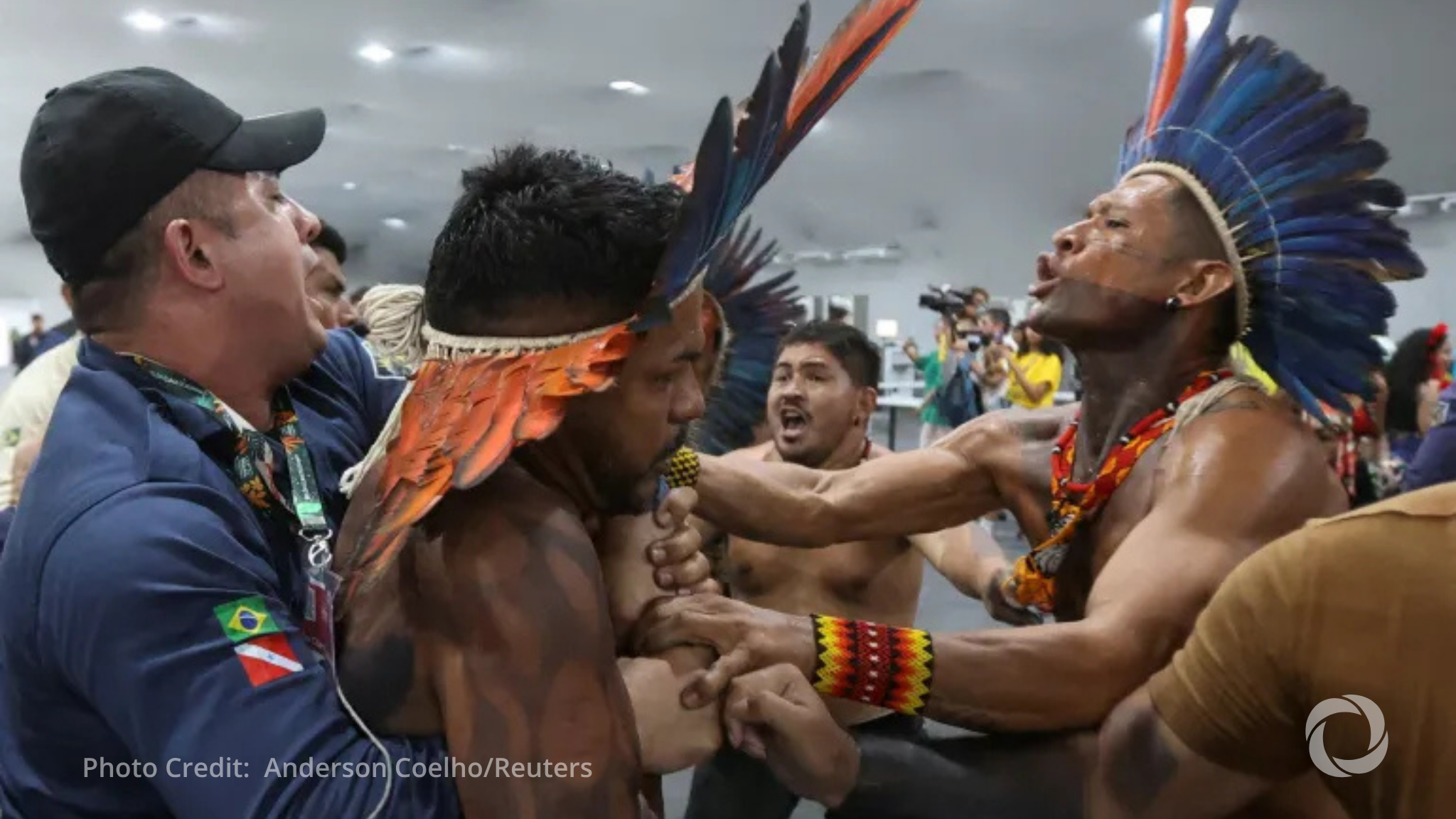Dozens of Indigenous protesters forced their way into the 30th annual United Nations (UN) Climate Change Conference in Brazil on Tuesday evening after hundreds of people joined a march to the venue, Al Jazeera reported. The protest on the second day of the UN climate summit in the Brazilian city of Belem highlighted tensions with the Brazilian government’s claim that the meeting is open to Indigenous voices. “We can’t eat money,” said Gilmar, an Indigenous leader from the Tupinamba community near the lower reaches of the Tapajos River in Brazil, who uses only one name, referring to the emphasis on climate finance at many of the meetings during the summit.
“We want our lands free from agribusiness, oil exploration, illegal miners and illegal loggers,” Gilmar added. A spokesperson from the UN, which is responsible for security inside the venue, said in a statement that “a group of protesters breached security barriers at the main entrance to the COP, causing minor injuries to two security staff, and minor damage to the venue.” The protest came as Brazilian President Luiz Inácio Lula da Silva has highlighted Indigenous communities as key players in this year’s COP30 negotiations, even as several industries continue to encroach on the Amazon rainforest during his presidency.
Lula told a leaders summit last week that participants at the COP30 would be “inspired by Indigenous peoples and traditional communities—for whom sustainability has always been synonymous with their way of life.” However, Indigenous participants taking part in rolling protests in and around the climate change meeting say that more needs to be done, both by Lula’s left-leaning government at home and around the world. A joint statement ahead of the summit from Indigenous Peoples of the Amazon Basin emphasized the importance of protecting Indigenous territories in the Amazon.
Leo Cerda, one of the organizers of the Yaku Mama protest flotilla, which arrived at the summit after sailing 3,000 kilometers down the Amazon river, told Al Jazeera that Indigenous peoples are trying to secure nature not just for themselves but for humanity. “Most states want our resources, but they don’t want to guarantee the rights of Indigenous peoples,” Cerda said. As the flotilla sailed toward COP30, Brazil’s state-run oil company, Petrobras, received a license to begin exploratory offshore oil drilling near the mouth of the Amazon River.
Representatives from 195 countries are participating in this year’s summit, with the notable absence of the United States. Under President Donald Trump, the US has fought against action on climate change, further cementing its role as the world’s largest historical emitter of fossil fuels. This year’s meeting is the first to take place since the UN’s top court, the International Court of Justice, ruled that countries must meet their climate obligations and that failing to do so could violate international law. According to The Guardian, some 5,350 fossil fuel lobbyists participated in UN climate summits over the past four years.

